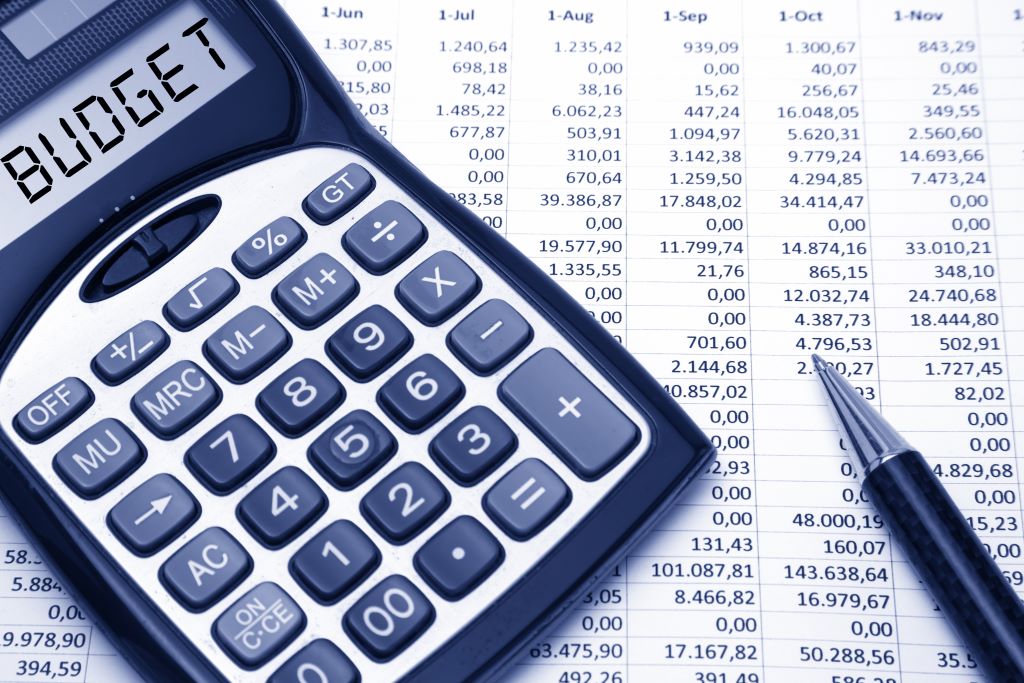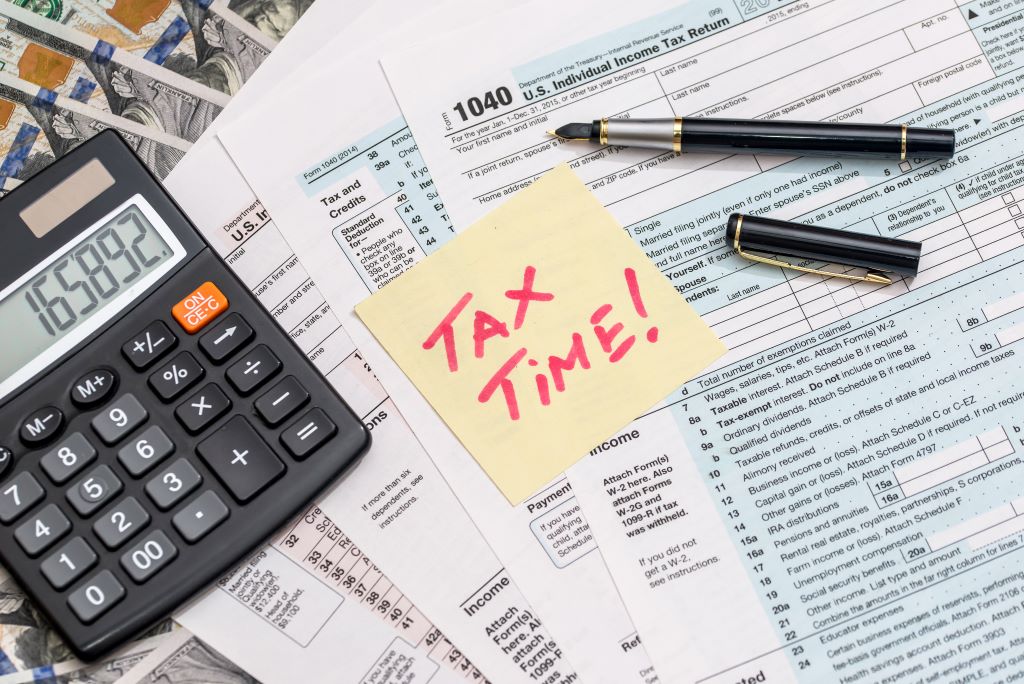
As the leaves start to turn this fall, it’s not only nature that’s going through a transformation. This is the perfect time to give your finances a thorough checkup before the year comes to an end. Just like tidying up your home before winter sets in, a financial checkup can help you stay on track to meet your goals. If you want to learn how to do a financial checkup, keep reading for the ultimate guide on how to do it this fall.
How Often Should I Review My Finances?
It’s recommended to review your finances at least once a year*. However, you should try to review regularly throughout the year to stay on track and make necessary adjustments as your life or finances change.
How to Do a Financial Check Up
To perform a financial checkup, we’ve set you up with 10 tips to check in on your finances before the year ends. Without further ado, let’s get started!
1. Evaluate Your Financial Goals
First things first! You should start by revisiting the goals you set at the beginning of the year. Have you made progress? Are there any goals that need to be adjusted or maybe new ones that have come up? Take a moment to reflect on what’s important to you and prioritize your financial goals.

2. Review Your Budget
Once you have your financial goals in mind, pull out your budget spreadsheet or app and review your spending for the past few months. Are you staying within your budget categories, or are there areas where you’ve overspent? Identifying any inconsistencies now will give you the chance to make adjustments before the year ends.
How Do I Create a Budget for Year-End Expenses?
To create a budget for year-end expenses, start by:
- List all projected expenses, including gifts, travel, and holiday activities.
- Dedicate specific amounts to each category based on your financial situation.
- Keep an eye on your spending to make sure you stay within budget.
- Consider reallocating funds if necessary.
For more tips on how to budget, check out our step-by-step guide here. Also try using a budget calculator if you’re new to building a budget, like this one here*.
3. Review Your Debts in Your Financial Check Up
Debt can seriously impact your financial standing, so make sure to review your outstanding debts this fall. Are you making progress in paying them down? If not, consider consolidating high-interest debts or refinancing if it makes sense for your financial situation. You should also make a plan to speed up your debt payoff in the coming months. If you want to learn more, a great resource for this topic is our recent blog post, How to Master Debt Reduction as the Year Ends.
How Do I Pay Down Debts Effectively Before the Year Ends?
To pay down your debts, try out some of the below methods:
- Prioritize paying off high-interest debts first.
- Consider debt consolidation or refinancing if it can lower interest rates.
- Put any windfalls or bonuses towards paying off your debt.
- Create a realistic repayment plan and make sure to stick to it.

4. Examine Your Savings
Check how your savings accounts are doing, including emergency funds, retirement accounts, and other investments. Are you on track to meet your savings goals? Consider increasing payments, if possible, especially to retirement accounts to take advantage of potential tax benefits.
What Are the Best Strategies for Saving and Investing at the End of the Year?
To get the most out of your savings and investments, try out some of the following:
- Maximizing payments to tax-advantaged retirement accounts.
- Considering tax-efficient investments.
- Automating regular payments to savings and investment accounts.
- Diversifying your investments to manage risk.
5. Review Your Investments in Your Financial Check Up
Don’t forget about your investments! Consider rebalancing your portfolio if your asset allocation has shifted. It’s also a good time to evaluate if your investments align with your risk tolerance and long-term goals.
What Should I Consider When Evaluating My Investment Portfolio?
When evaluating your investment portfolio, consider factors such as:
- Variation across different asset classes.
- Risk tolerance and investment limit.
- Performance of individual investments.
- Costs associated with managing the portfolio.
- How they align with your long-term financial goals.
6. Check Your Insurance Coverage
Review your insurance policies, including health, life, auto, and home. Double check that your coverage levels are still appropriate for your current circumstances and don’t forget to explore potential savings by shopping around for quotes.
What is the Importance of an Emergency Fund in a Financial Check Up?
An emergency fund may provide a financial backup plan in case of unexpected expenses or a sudden loss of income. It may help you avoid going into debt and can also provide peace of mind, making it an important part of a healthy financial checkup.

7. Maximize Tax Efficiency
Look for opportunities to minimize your tax liability. Consider tax-advantaged accounts like IRAs or HSAs and explore deductions or credits you may be eligible for. Keep in mind, reviewing with a tax professional can be helpful in adjusting your tax situation.
How Can I Optimize My Tax Situation Before the Year Ends?
When reviewing your taxes, consider the following ways to optimize:
- Contribute to tax-advantaged accounts like IRAs and HSAs.
- Consider tax loss harvesting*.
- Maximize deductions and credits that are available to you.
- Seek advice from a tax professional for personalized strategies.
8. Plan for Year-end Bonuses or Payouts During Your Financial Check Up
If you expect to receive a year-end bonus or unexpected payout, plan ahead for how you’ll use this money. Consider putting a portion towards debt payoff, savings, or investments to maximize their impact on your finances.

9. Prepare for the Holiday Season
The holidays often bring additional expenses. Because of this, it can be helpful to create a budget for gifts, travel, and other seasonal expenses. Starting early can help you avoid financial stress and overspending, too. For more tips on how to prepare, you can also check out our blog post How to Prepare Your Wallet for Holiday Savings as Summer Ends.
10. Set Financial Resolutions for the New Year
As you approach the end of the year, start thinking about your financial resolutions for the upcoming year. What are your priorities, and what steps can you take to achieve your goals? Setting clear intentions now can set you up for financial success in the months ahead.
Taking the time for a fall financial checkup is a proactive step towards helping to protect your financial situation. By reviewing your year-end finances now, you’ll be better prepared to make informed decisions and set the stage for a successful new year. Remember, your financial journey is unique, so tailor these steps to suit your specific situation and goals. If you have complex financial needs or questions, consider seeking advice from a qualified financial advisor or planner.
High-interest loans can be expensive and should be used only for short-term financial needs, not long-term solutions. Customers with credit difficulties should seek credit counseling. The opinions expressed above are solely the author’s views and may or may not reflect the opinions and beliefs of the website or its affiliates. Cash Factory USA does not provide financial advice.
Image(s) or Footage (as applicable), used under license from Shutterstock.com.
* This blog contains links to other third-party websites that are not endorsed by, directly affiliated with, or sponsored by Cash Factory USA. Such links are only for the convenience of the reader, user, or browser.